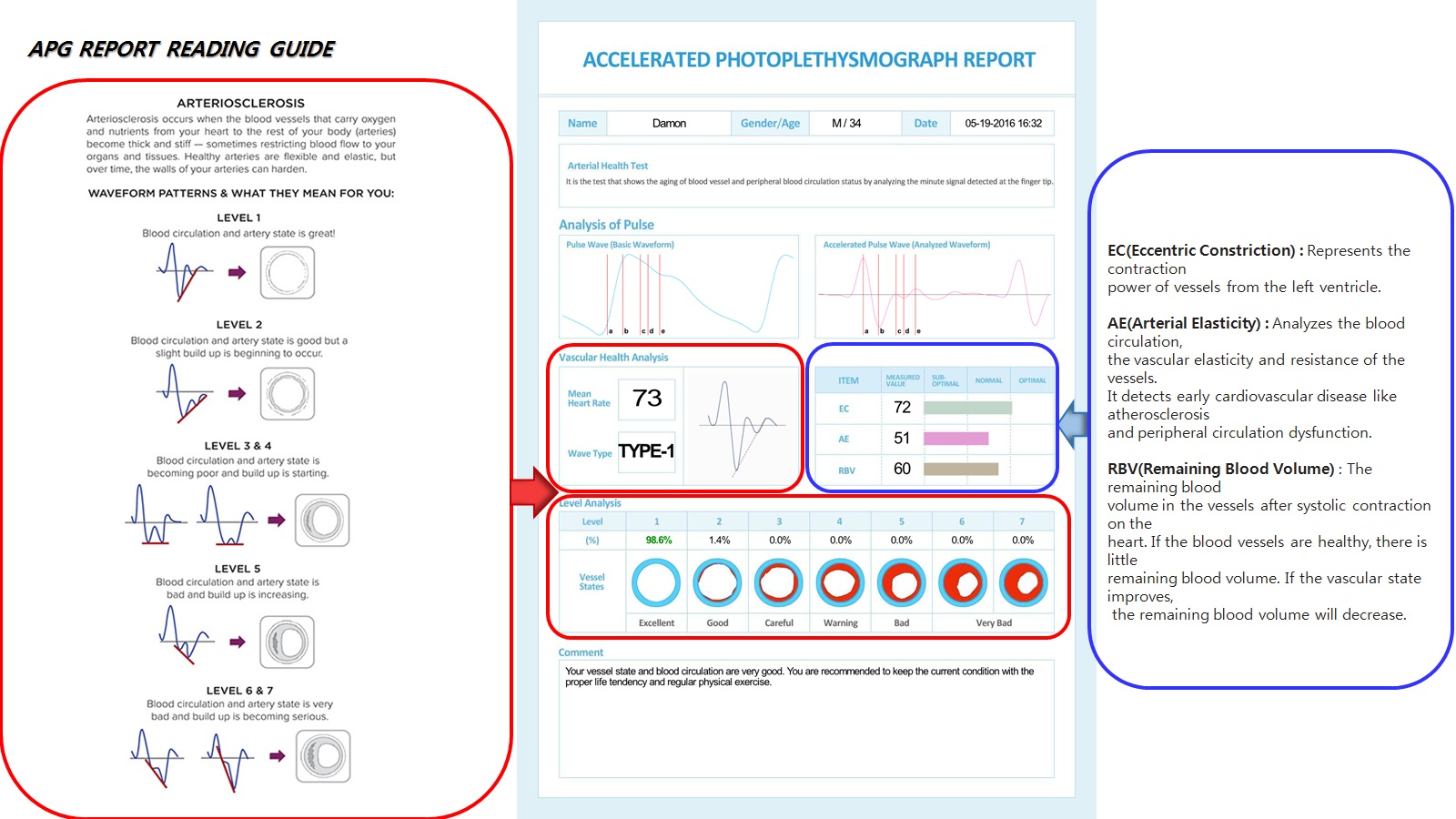
EC: Eccentric Constriction
AE: Arterial Elasticity
RBV: Remaining Blood volume
HRV: Heart Rate Variability
SNS: Sympathetic Nervous System
PNS: Parasympathetic Nervous System
TP: Total Power
VLF: Very Low Frequency
LF: Low Frequency
HF: High Frequency
.jpg)
.jpg)
.jpg)
.jpg)


This simple, quick, non-invasive test utilizes plethysmography (PTG), accelerated plethysmography (APG) and other innovative technologies to measure the following:
The Cardiovascular is an FDA-approved, Class II medical device for cardiovascular and autonomic nervous system screening and evaluation.
Cardiovascular disease is, without question, the nation’s biggest killer. An estimated 81 million American adults live with some form of heart disease, and 1 out of every 2.9 deaths in the U.S. are due to cardiovascular illness. It claims more lives than cancer, respiratory disease, diabetes and accidents combined. In addition, more than 74 million adults (more than one in three) have hypertension, with over 20% of these people not even aware that they are at risk.
According to the American Heart Association, if a person’s blood pressure is at or above 140/90, they have a 69% chance of having their first heart attack, 74% of developing congestive heart failure, and a whopping 77% chance of having their first stroke.
This testing is simple, fast and completely non-invasive, and gives valuable information about a patient’s current health status.